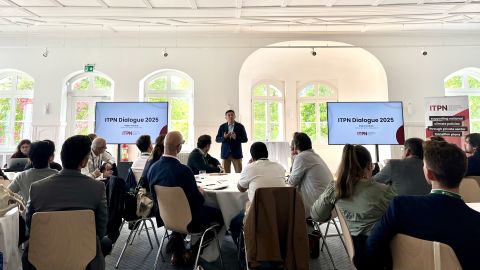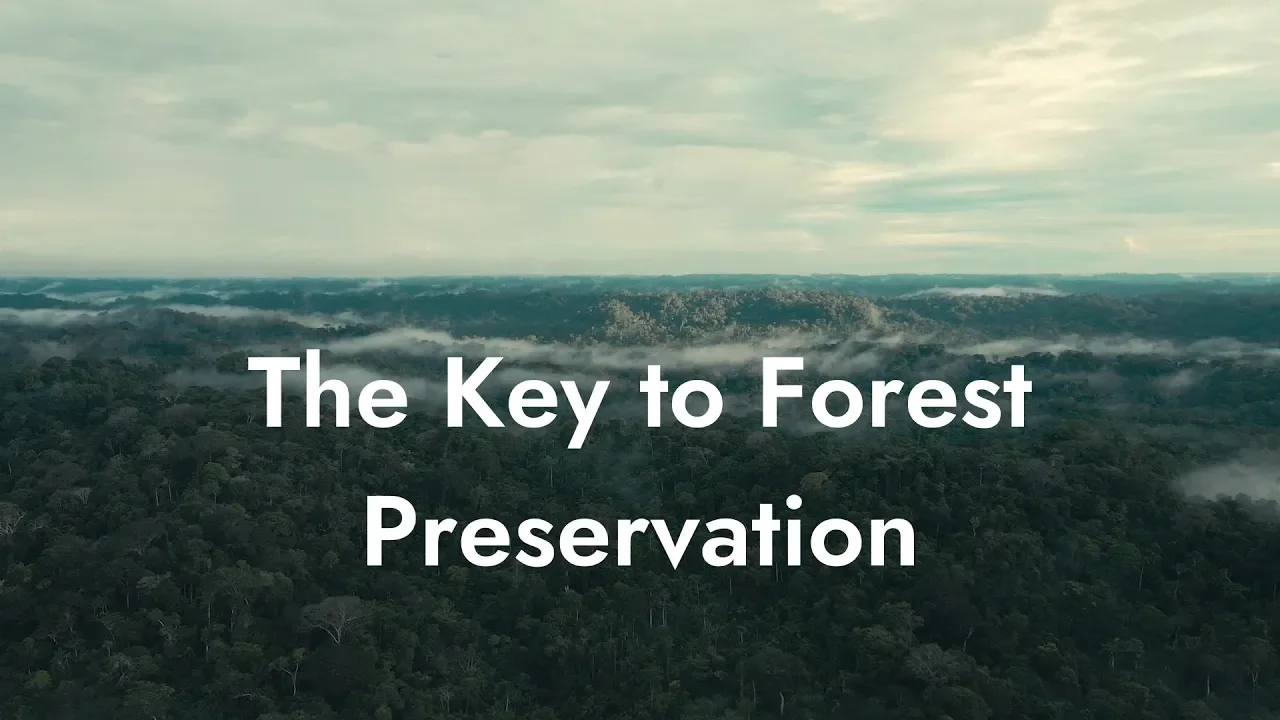Ideas from the Speakers
The first speaker, who oversees sustainability at a bank, emphasized the bank’s role in helping clients navigate their transition to greener practices. It provides corporate clients with advisory services and financing solutions to encourage decarbonization aligned with their transition plans. The bank also supports individual customers through products like green mortgages and sustainable investment opportunities, enabling them to participate in the green transition. The speaker emphasized that assisting clients in their sustainability transition not only benefits society but also reduces financial risks for banks. By ensuring clients transition in a responsible fashion, banks create a “win-win-win” outcome, benefiting clients, banks, and society as a whole.
Another speaker called attention to the construction sector’s significant contribution to global greenhouse gas emissions (37%), which includes both construction activities and infrastructure maintenance. To drive innovation, we must be willing to take risks in advancing environmentally conscious strategies. His company’s philosophy of creating more with fewer resources exemplifies how the construction industry can lead substantial change towards circular approaches. The growing market for green concrete is a key example, especially in regions willing to pay a premium for lower-carbon footprints. An important point is that collaboration is required for meaningful change to be pursued. He noted that while leading the way is valuable, the impact multiplies when others join in. Many remain concerned about the slow pace of the climate transition, pointing to untapped opportunities, such as pension funds, that could significantly boost green investments.
One speaker argued that a major problem is the lack of global standards and frameworks to support risk-sharing and increase its productivity. Without a level playing field, it is difficult for transitioning markets to gain and maintain momentum. Building on this, another speaker noted that policy development often lags behind the private sector’s ambitions regarding transitions. The United Arab Emirates’ commitment to achieving net-zero emissions by 2050 was emphasized as a bold step for a fossil fuel-dependent economy. But this transition is achievable if it is secure and equitable. Close collaboration between the private and public sectors is required to successfully manage large-scale transitions and challenges, such as meeting ever-increasing energy demands or updating outdated regulations.
Another speaker noted the insurance sector’s close connection to risk management and called for greater resilience in the face of growing climate threats like floods. She stressed the need for proactive strategies, such as divesting from thermal coal, to address the multiple challenges effectively. To achieve this, she warned against fragmented approaches and highlighted the importance of coordinated transition plans, avoiding the unintended consequences of competition.
One speaker advocated for a balanced approach to decarbonization, also stressing the need for collaboration. While excluding unsustainable sectors may be beneficial, he urged the financial sector to leverage opportunities to invest in green opportunities. Supporting industries in transition requires strategic capital allocation to achieve meaningful change. A speaker noted that the Global South faces greater challenges in transitioning compared to the Global North, even though renewable energy sources like solar power are becoming more affordable. To address this problem, funding must be directed more efficiently to better incentivize renewable energy.
Collaboration was the central theme of the discussion. Achieving a sustainable transition requires systemic change driven by collaboration between the private and public sectors, with finance playing a key role in this cooperative approach. As the backbone of today’s society, the financial sector holds a unique position to lead the transition towards the goal of net zero. By embracing innovation, shifting perspectives, and, most importantly, fostering a shared commitment, finance can accelerate the transition to a more sustainable future.










